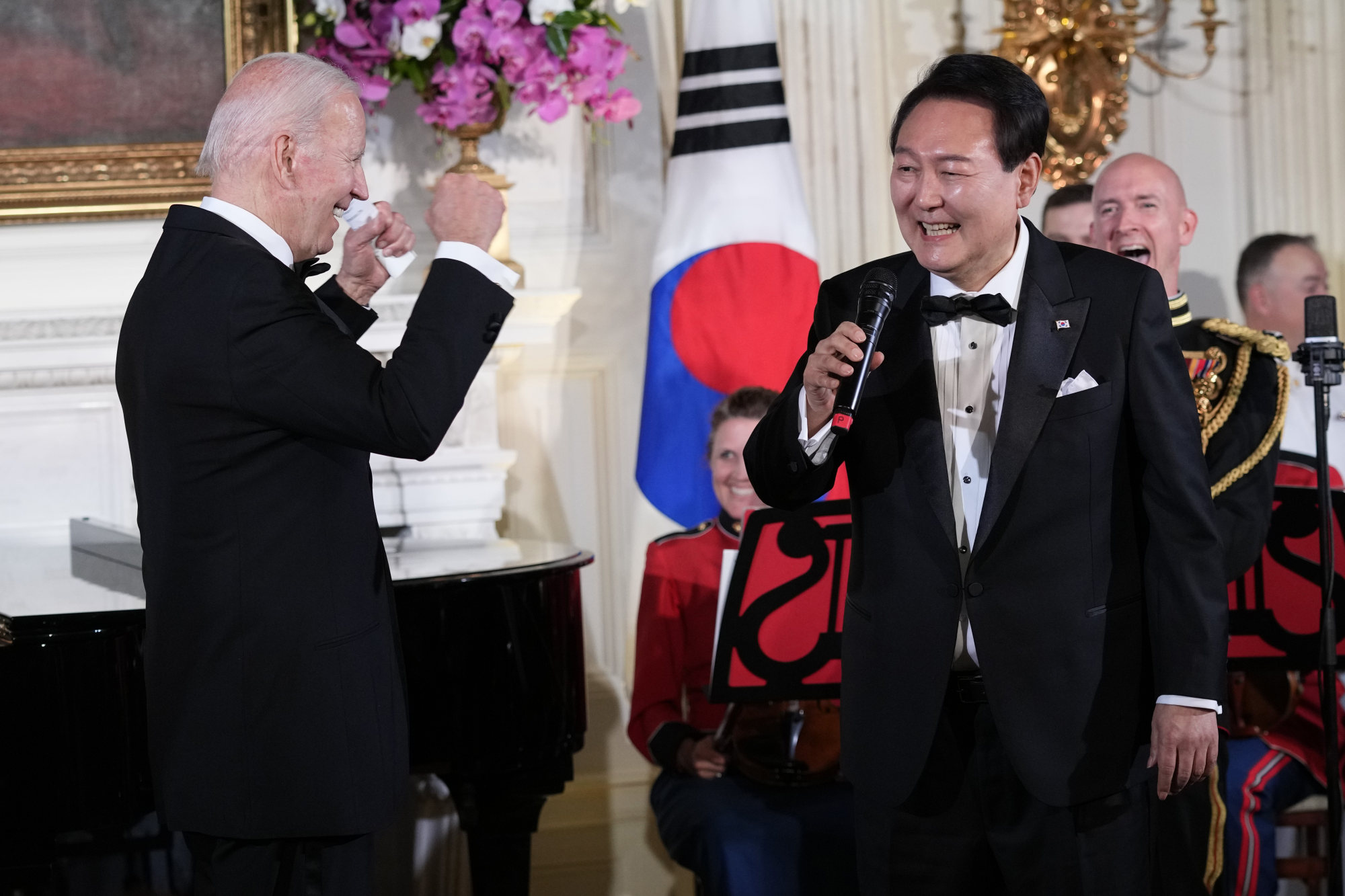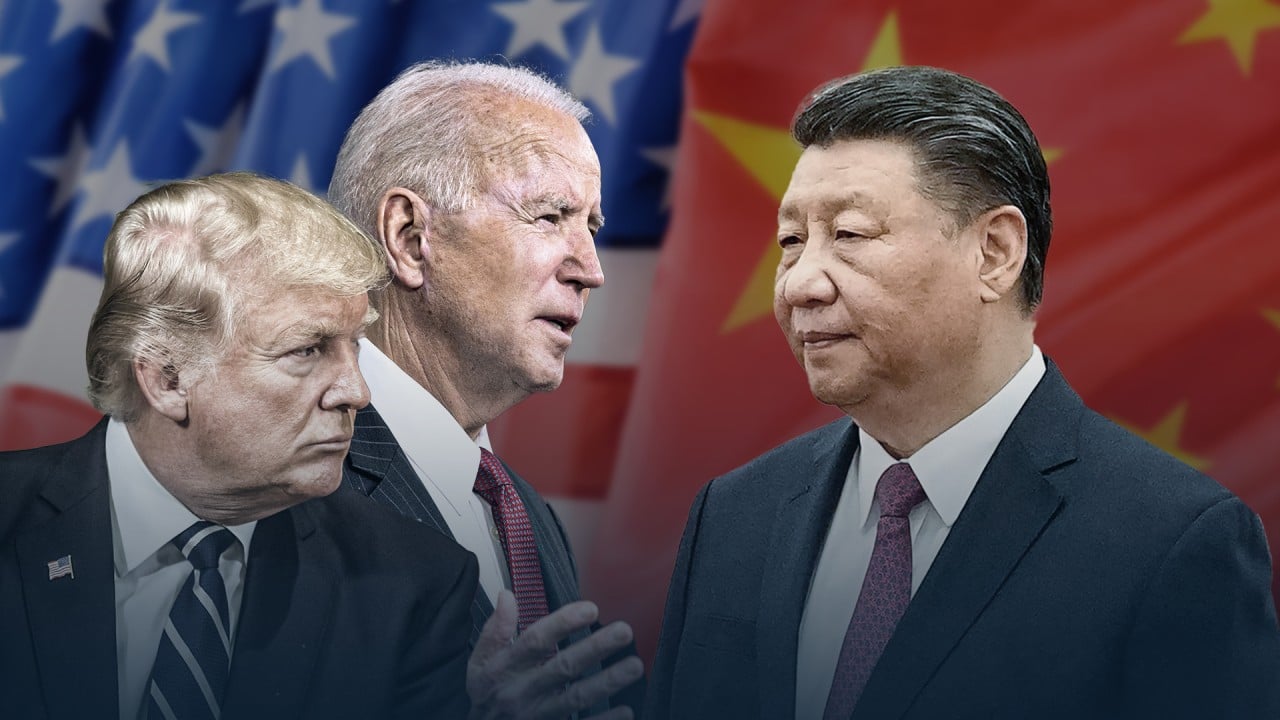
US-China relations: ‘de-risking’ and cold-shouldering are not sustainable superpower strategies
- Biden’s administration is talking up ‘a foreign policy for the middle class’, while pushing alliance mechanisms against China and Russia
- As a result, Beijing seems to have given up on engaging with Washington, and is focusing on Europe. China and the US can’t go on like this, though
Indulged or not, he enunciated an essentially state interventionist and protectionist economic approach to restoring the United States’ middle class, whose atrophy he implied threatens the very foundation of American power and appeal.
Key among the drivers of economic inequality, he said, are “decades of trickle-down economic policies – policies like regressive tax cuts, deep cuts to public investment, unchecked corporate concentration and active measures to undermine the labour movement that initially built the American middle class”. He called for “a foreign policy for the middle class” and said “trade policy needs to be about more than tariff reduction”.
While industrial policy has worked remarkably well in China, as it did in Japan and South Korea when those economies were taking off, it may not readily take root in American soil.
A leopard doesn’t change its spots, as the adage goes. The United States will remain the ultimate bastion of laissez-faire capitalism, just as China won’t change its spots either. This means that policy transmutation in the US will be fraught with practical difficulties, if it is not impossible, for it will require the corresponding adaptation of a political system now canonised as “values” such as liberty and democracy.
Viewed from a foreign affairs perspective, however, Sullivan’s speech makes pragmatic sense in that it serves to promulgate America’s foreign policy as it is currently practised, namely, rallying Washington’s allies to join its concurrent contests against China and Russia, therefore justifying its resistance to changing course.
An American president is at his best when it comes to dealing with external affairs like diplomacy and war. A federation formed originally by 13 colonies, the United States has a weak central government by design with a constitution that stresses individuals’ and states’ rights – not even the Roosevelt administration’s much-vaunted New Deal, which resorted to government regulation of the economy in the wake of the Great Depression, could change that. Indeed, it was president Franklin D. Roosevelt’s handling of World War II that launched him to the pinnacle of power and historical fame in the country.
It is therefore no surprise that the US, under the Biden administration, has put together a myriad of new Cold War-style alliance mechanisms against China and Russia, such as a beefed-up Nato, groups with invented names like the Indo-Pacific, the Quad and Aukus, and wave after wave of embargoes on chip and chip technology sales to Chinese companies. Its core partners in these efforts are mostly developed economies and host countries of American military forces.
All this is despite, or rather because of, the administration’s failure to achieve almost anything significant and concrete domestically.
Admittedly, the Biden team is adroit. Its foreign policy is fundamentally self-serving, yet it is able to corral its allies in their designated positions in its plan and give the appearance of a free-will collective assembled in the name of values.

But how long can Washington keep up such a policy?
Recently, Wang Jisi, a renowned and well-connected international relations scholar in Beijing, said “decision-makers” in China had lost hope of improving relations with the US. He quoted some of them as saying, “How do we improve relations with those countries that endeavour to keep China down?”
The true battleground in the US-China cold war will be in Europe
US Secretary of State Antony Blinken said about two weeks ago that China must make clear its intentions to keep engaging with the US; China ignored him. Last Thursday, Sullivan called on China to have the “strategic maturity to accept that we must maintain open lines of communication even as we take actions to compete”. On Wednesday, Blinken expressed hope that he could visit China this year, saying that it is important that “we re-establish regular lines of communication at all levels and across our government”. Both are unlikely to be heeded.
In my very first essay for this newspaper in January 2021, I said it was time “for China to make known its distrust of America and to demand from it good faith for any meaningful engagement based on predictability, steadiness and clarity”. Belatedly, Beijing seems to be doing just that.
But things have changed a lot since then, and are moving fast. “De-risking” is a narrow strategy, while “ghosting” is a way of bargaining. The two superpowers are destined to meet to settle their differences, sooner rather than later.
Terry Su is president of Lulu Derivation Data Ltd, a Hong Kong-based online publishing house and think tank specialising in geopolitics


